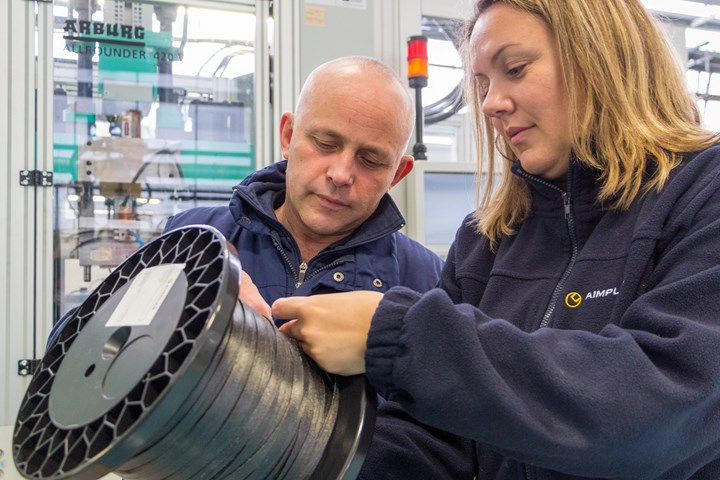Aimplas joins LIGHTCAR project to develop eco-friendly composite materials
Funded by the Valencian Innovation Agency, novel long fiber thermoplastics aim to lighten electric vehicle batteries by 50-70%

Photo Credit: Aimplas
Aimplas, the Plastics Technology Centre (Valencia, Spain), has joined the LIGHTCAR project, funded by the Valencian Innovation Agency (AVI), to develop novel composite materials with improved eco-friendly properties that will reduce the weight of electric vehicle (EV) batteries by 50-70%. The focus on weight reduction in the automotive industry involves reducing battery consumption in EVs so they emit less CO2.
The project is coordinated by Industrias Alegre (Valencia, Spain) and boasts the participation of other Spain-based companies and centers, namely Itera Soluciones de Ingeniería (Itera Mobility Engineering) and Sinfiny Smart Technologies.
Specifically, partners are working to develop new long fiber thermoplastic composites that provide advantages such as lightness, impact resistance and rigidity, as well as good recyclability and processability using conventional, efficient manufacturing methods with low-waste generation. For processing, the project will also design a flexible, high-speed production cell for the manufacture of parts in which electronic components can be fitted.
Related Content
-
Plant tour: Joby Aviation, Marina, Calif., U.S.
As the advanced air mobility market begins to take shape, market leader Joby Aviation works to industrialize composites manufacturing for its first-generation, composites-intensive, all-electric air taxi.
-
Optimizing a thermoplastic composite helicopter door hinge
9T Labs used Additive Fusion Technology to iterate CFRTP designs, fully exploit continuous fiber printing and outperform stainless steel and black metal designs in failure load and weight.
-
Plant tour: Airbus, Illescas, Spain
Airbus’ Illescas facility, featuring highly automated composites processes for the A350 lower wing cover and one-piece Section 19 fuselage barrels, works toward production ramp-ups and next-generation aircraft.













